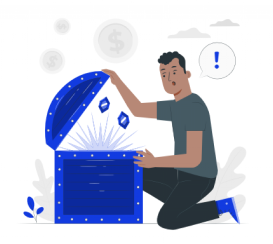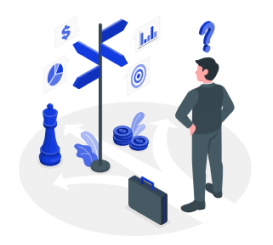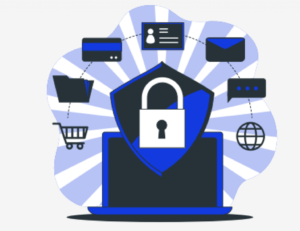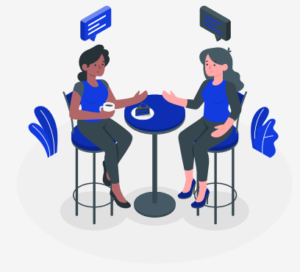Advice for Safer Gambling
As adults, it’s perfectly fine to indulge in gambling as a fun activity as long as it is kept in moderation and you don’t overstep your boundaries. There can be a lot of misconceptions regarding the topic of gambling addiction, and for victims, it can be difficult to identify when they have a problem or not.
Gambling addiction doesn’t come in one shape or size. It’s a multifaceted problem that requires a unique approach depending on the person. An individual may be addicted to sports betting, or they may be addicted to table games or slots. It is essential to fully understand the person’s problem, identify if it truly is a problem, and then seek help from them. Compulsive and dangerous gambling is a problem, but that does not mean that gambling itself is the issue. It is entirely possible to enjoy safe and healthy gambling and have a great time
This article will provide readers with an authoritative voice on how to approach gambling and how to engage in it safely. Here, you’ll find tips on how to gamble responsibly and what to do if you feel yourself getting out of hand. If you’re reading this article as a third-party, concerned about a loved one, then this article will be equally as helpful to you as well.
Read on below to see how you can learn more about responsible gambling.
If you feel like you have a gambling problem, you shouldn’t be fighting the battle alone. Researching the problem
and learning how to bet responsibly will help incredibly for those looking to take control of their hobby.
Responsible betting does not have to mean cold turkey quitting. There are effective ways to control yourself and
gamble responsibly, and the section below will give you the best advice on how to do just that.
 There are multiple ways to ensure you stay in control of your gambling habits, and once you can self-identify a potential problem that jeopardizes that control, it will be much easier to solve.
There are multiple ways to ensure you stay in control of your gambling habits, and once you can self-identify a potential problem that jeopardizes that control, it will be much easier to solve.
Many consider gambling as a hobby or a form of entertainment, but gambling can come with intense emotions and high stakes when not properly kept in check. It’s important for the gambler to assess how much money they are willing to lose and how much time they are willing to spend.
These are all valid questions one must ask themselves if they feel that they are losing control, and if you answer “yes” to any of these questions, you may have to reign in the amount of time or money you spend on your hobby.
 The “Prove-It” test is an objective way to assess how you are coping with gambling in your life. The basic premise of the test is that you should try to monitor yourself while gambling and address important questions related to it. A big concern in terms of coping with addiction is the denial stage. Often, an individual who is in the denial stage of coping with a gambling addiction will become defensive and deny they have a problem. Phrases such as “I can quit anytime, it’s just that ___” become quite commonplace, and family and friends can help an individual take a step back and change their perspective.
The “Prove-It” test is an objective way to assess how you are coping with gambling in your life. The basic premise of the test is that you should try to monitor yourself while gambling and address important questions related to it. A big concern in terms of coping with addiction is the denial stage. Often, an individual who is in the denial stage of coping with a gambling addiction will become defensive and deny they have a problem. Phrases such as “I can quit anytime, it’s just that ___” become quite commonplace, and family and friends can help an individual take a step back and change their perspective.
A way to “prove-it” is to write down everything regarding your gambling hobby on a piece of paper: how much you’ve spent, how much you’ve lost, how many times you deposit a day, and so on. The key here is, to be honest with yourself and as objective as possible. Get a friend or family member to help you out with this process if you feel like you’re obfuscating facts
 In addition to the “Prove-It” test, you can take the quiz below to determine whether you may have a problem or not. This test does not serve as a means of formal diagnosis but more of a guide to help realize your current state and whether you may be addicted to gambling or not.
In addition to the “Prove-It” test, you can take the quiz below to determine whether you may have a problem or not. This test does not serve as a means of formal diagnosis but more of a guide to help realize your current state and whether you may be addicted to gambling or not.
There are a lot of resources out there to help you control your gambling if you feel it’s getting out of hand. These tools can be used individually to target a problem area, or can be used in conjunction to try and provide a blanketed support to try and control how you gamble online. There are also a lot of tools to help you with gambling addiction on the casino’s help page
If you’re seeking help through a healthy discussion regarding a gambling addiction, feel free to contact Gambler’s Anonymous – you can either talk to a representative on the phone or attend a meeting.

Every online casino will have the option to set a deposit limit to control how much you spend. Many casinos have the “unlimited” option set as the default, and it can be easy to fall into the trap of not setting a deposit limit and losing control. However, the deposit limit tool is very useful in preventing individuals from spending out of their budget.
When someone is addicted to gambling, it is common to attempt to try and amend their set deposit limit. Typically, casinos make it as hard as possible to change this, but they are not allowed to completely restrict you from changing it. This can be an area of concern for those that may relapse and go back to betting uncomfortable amounts.

Self-Exclusion is a very effective way of trying to control your gambling habits. It’s not the most extreme measure you can take, but it can certainly be hard for compulsive gamblers to restrict themselves with the self-exclusion tool.
If you feel like you need to do a short to medium-term break from gambling, the self-exclusion tool is available at all online casinos. You can choose how long you want to stop gambling, and then the casino will block your account for that set period of time.
During the self-exclusion period, gambling addicts may face withdrawal symptoms and try to relapse. They can do this either by signing up for a new casino, asking friends to proxy gamble for them, or find other outlets to gamble their money. It is important to take this period of time as a way to grow and get used to life without gambling. Then, when you’re ready to return, then you can have a more balanced relationship with it.
 Gambling blocking software is the most extreme measure one can take to try and curb their compulsive gambling habits. There are multiple software, web browser extensions, and apps that can completely ban and block the user from accessing online casinos.
Gambling blocking software is the most extreme measure one can take to try and curb their compulsive gambling habits. There are multiple software, web browser extensions, and apps that can completely ban and block the user from accessing online casinos.
There are two different types of software options available to you when you decide to install a gambling blocking software:
Much like self-exclusion, compulsive gamblers can display withdrawal symptoms very early on. If you are a loved one, you should stay diligent and keep an eye on the gambler’s habits post-block. They may be more irritable and display compulsive behavior. If they continue to deteriorate, consider contacting Gambler’s Anonymous or other therapy options.

![]() Facebook/Instagram
Facebook/Instagram
Although there is no way to block specific categories of apps on Facebook or Instagram currently, you can hide ads by clicking on the “x” next to the ad. This will help the algorithm learn your preferences, and after a while, gambling ads will be filtered out.
Alternatively, try clearing your browsing data and cookies so that any history of your gambling tendencies won’t be remembered by Facebook. The same would work with your mobile phone and Instagram.
Unfortunately, there has been no official communication from Facebook regarding limiting potential harmful ads about gambling on their platform. We are currently in discussions regarding the matter and hope to make positive strides soon.
![]() Twitter
Twitter
Like Facebook, there is no direct way to block gambling ads completely. The same tactics of clearing cookies and browsing data will work. However, you may need to interact with the algorithm and continue to close ads or press “I don’t like this ad”.
You can click this link to personalize the content you see on Twitter. De-selecting gambling will remove significant amounts of gambling content on your feed. However, de-selecting other related categories like sports or fantasy leagues may also help curate a safer environment for you online.
![]() Google
Google
Google is the main source of gambling advertisements, and managing your preferences here will be very effective in creating the atmosphere you want to see online.
You can block specific advertisers by visiting Google’s “remove unwanted ads” page. Similarly, you can
also mute similar ads.
Sometimes fighting the struggle alone is not enough, and external help is required. Family and friends can provide a great deal of help, but having professional help could be a much better solution instead of relying completely on family, who may not know how to help effectively.
Below you can find the necessary resources you can access for help if you ever feel like you need it.
Gambler’s Anonymous is a non-profit organization that specializes in helping individuals find comfort with others that have the same issues. You can either call a hotline for a 1:1 talk, or you can join a meeting.
Another extremely useful hotline resource where you can call for more help regarding gambling issues. You can join the council and receive training to help improve yourself and others as well.
Gambling Therapy is a global resource that is dedicated to providing emotional support to those affected by gambling.
Gambler’s Anonymous is a non-profit organization that specializes in helping individuals find comfort with others that have the same issues. You can either call a hotline for a 1:1 talk, or you can join a meeting.
The CPRG is a collective non-profit effort by gaming providers, research centers, and helpful resources to find ways to help curb problem gambling.
The RGC is a reliable non-profit organization dedicated to helping those with compulsive gambling issues. They have support lines and resources to help people emotionally and practically.
BeGambleAware is an extensive resource that provides information regarding responsible betting, and educates problem gamblers, loved ones, or trained professionals on what they can do to help.
Gambler’s Anonymous is a non-profit organization that specializes in helping individuals find comfort with others that have the same issues. You can either call a hotline for a 1:1 talk, or you can join a meeting.
GamCare is an extremely helpful resource for those struggling with gambling, or for those with a loved one that is struggling. Here, you can receive free treatment, call their hotline, or read more on self-help.
The ECA is a non-profit organization dedicated to helping those afflicted by gambling. There, you can find helplines for all EU countries so you always have someone reliable to talk to for professional help.
Gambling Therapy is a global resource that is dedicated to providing emotional support to those affected by gambling.
Gambling Help is an extensive resource for those struggling with gambling. Talk to a professional, find resources to help yourself or a loved one, or talk to other like-minded individuals on their online forum.
Lifeline is an organization dedicated to helping individuals with any mental health issue, not specifically gambling. However, they do provide extensive support to those who are affected by gambling addiction. Find out relevant information pertaining to the emotional stresses that problem gambling can invoke.
Gambler’s Help is another non-profit organization that specializes in providing gamblers that need helpwith a professional resource for just that. Get help and support, call a professional, or read up on information regarding problem gambling .
Gambling Therapy is a global resource that is dedicated to providing emotional support to those affected by gambling.
Sometimes fighting the struggle alone is not enough, and external help is required. Family and friends can provide a great deal of help, but having professional help could be a much better solution instead of relying completely on family, who may not know how to help effectively.
Below you can find the necessary resources you can access for help if you ever feel like you need it.
 Helping someone who may have a gambling addiction can be a daunting prospect, especially if the individual isn’t aware of their problem yet. The conversation may turn into a confrontational affair that does more harm than good, so it’s important to have a solid plan when approaching the individual in question.
Helping someone who may have a gambling addiction can be a daunting prospect, especially if the individual isn’t aware of their problem yet. The conversation may turn into a confrontational affair that does more harm than good, so it’s important to have a solid plan when approaching the individual in question.
Below is a strategy guide on how to help your friends, loved ones, or others.
 Start the Conversation
Start the Conversation
The most important thing you can do when trying to help someone who is struggling with a gambling addiction is to take the first step. Bring up the prospect and gauge how they may feel about their habits. If the conversation turns hostile, use gentle language to reinforce the fact that you’re looking out for them and here to help.
Remind them that they’re a loved one or a close friend and that you’re worried for them and looking out for them. Then, once they open up a bit more about the issue, you can begin to try and understand the state of their mental health and how gambling may be affecting them.
Support the Initiative
Controlling one’s gambling habits can be extremely difficult, and they will need your help and support. If you see them struggling, suggest effective tools such as spending control tools, self-exclusion tools, or outright gambling blocks. These tools, plus your emotional support, can help immensely.
Encourage Positive Step
You don’t need to go over-the-top with showings of support, even the littlest gesture can really encourage your friend to continue their journey with gambling addiction. Phrases such as these can help invigorate an individual who is struggling with addiction:
Variations of these phrases can be adapted depending on the needs of the individual.
 Initiate An Open Conversation
Initiate An Open Conversation
When discussing gambling with a young person, the strategy behind the conversation is a bit different than when talking to an adult. Oftentimes, unless the child has his or her own income source, the child is gambling with funds given to them by the parents. It is crucial you do not take extreme measures to ostracize them and create a bad atmosphere between you.
Open the conversation by imploring their thoughts on the issue. What do they think of gambling, and do they think it could be a problem? Then, gently press your opinion and ensure them that you’ll be there to help them through their journey.
Understanding the Link Between Gaming and Gambling
Many video games these days blur the lines between what is seen as virtual rewards and what is gambling. Players can receive “loot boxes” as a reward for playing the game or completely certain achievements, and the probability of receiving rare items that may be worth real money is akin to that of slot machines and other games of chance. This online marketplace of trading game items as a digital currency serves as a gateway for many young people into gambling.
Control Gambling Adverts
If a young person has a gambling problem, they may be seeing gambling adverts on their social media applications. Children are more susceptible to advertising tactics, so it is important that you discuss
the prospect of hiding and blocking gambling adverts. You can see how to do that on our resource page here.
 Control Your Finances
Control Your Finances
The most important thing when helping someone else is to keep your own finances safe. Never lend money to someone who is addicted to gambling if you think they will just gamble with it – this only enables and encourages their behavior. If you do lend money, make sure it is to help deal with necessities.
Seek Help
If you are dealing with overwhelming emotional stress, whether it be directly because of the affected gambler or not, there are many helplines to help get you through the ordeal. Never feel afraid to talk to a professional, as it’s their job, and they are always happy to help. Also, never feel like your problems are not worth talking about. They always are.
Set Boundaries
You may become frustrated with helping out a gambling addict due to conflicts and confrontations, and you may lose sight of the goal. Relationships may deteriorate, unfortunately, and you may try to overcompensate to help the individual. It is important you do not risk anything valuable of your own and to set boundaries regarding what behavior is acceptable. It is important to keep your self-respect even when helping an individual go through their journey of problem gambling recovery.
